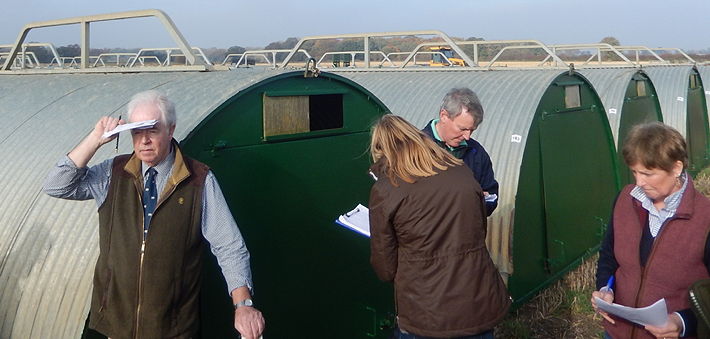Prices are continuing on their upward track with no red ink in sight, although we have yet to scale the dizzy heights reached in November 2013 when the DAPP (now the SPP) hit 172.03p/kg; cull sows were worth 110p/kg; 7kg weaners were traded at £42.60/head; the euro was worth 83.6p, but a tonne of wheat cost £156/t ex farm.
And now fast forward to the present day with the SPP still on the rise, putting on 0.63p to stand at 158.45p/kg; most weekly contribution prices up by 1p within the 159p-164p range in the main; and spot pigs remaining as rare as rocking horse deposits with quotes around the 170p/kg mark. Spare pigs remain extremely scarce, hence the current high prices in what continues to be very much a sellers’ market.
The pig price outlook across much of Europe remains relatively bullish with the latest influential German producer price rising by 4 euro cents to €1.80, although sow values are reported to have dropped back slightly. But with the pound continuing to weaken, a strong euro, which traded on Friday afternoon worth 85.94p, helped to re-dress the balance with the result that cull sow prices mainly stood on at around the 100p/kg in the main.
Weaner prices continue to defy gravity with the latest AHDB 7kg average up by £1.10/head or to £42.32/head and 30kg weaners averaging £59.36/head but, in both cases, spot trades have been anywhere between £2 – £5/head higher than this. Many finishers are still short of numbers to push through their units and are prepared to pay premium prices rather than leave finishing pens empty.
Providing current finished pig values are maintained, stores and weaners should still show a modest profit, but the crunch may come if we see a price drop early next year. Currently, it still a case of ‘so far so good’.
Grain futures prices ended the week little changed with UK feed wheat traded on the LIFFE market for May delivery at £148.70/t, November at £140.50/t and March next year at £143.25/t. UK spot feed wheat prices traded at slightly easier levels with ex farm wheat quoted at £142.90/t.
Commodity traders have seen oilseed markets suffer due to a drop in the value of the Brazilian Real with significant falls recorded of up to 7% and, as a result, Chicago soya bean futures also eased by $8.45/t and global markets also remain greatly affected by currency movements. Every time Mr Chump goes off on a Twitter rant, international stock markets and currency values go into roller-coaster mode.
And finally, closer to home, UK farmers are rejoicing at the recent rain which will work wonders for crop growth rates and may also help to prevent straw becoming more expensive than ever, bearing in mind that this golden commodity is also in much demand from energy plants and not just humble livestock farmers.
PS. My wife also twitters a lot if I come home late from the pub…




